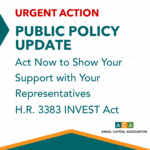As the election nears, Kamala Harris and Donald Trump are ramping up their campaigns. This includes fleshing out their policy platforms. Both candidates have highlighted how they will impact small businesses and improve the economy. Here is a breakdown of what we know today regarding each candidates sentiments regarding small businesses based upon their recent campaign speeches.
Harris
In a campaign speech in New Hampshire on September 4, 2024, Vice President Kamala Harris continued to lay out her economic agenda by announcing policies aimed at helping small businesses. She discussed adding tax relief for small businesses and cutting red tape that impedes small business formation and growth. Harris wants to increase the existing small business tax deduction for startup costs up to $50,000 and allow businesses to wait to claim the deduction until the year they first turn a profit to ensure they receive the full benefit. This is an increase from the current $5,000 tax break start-ups receive. She also has a goal of 25 million new business applications in her first term. Her plan includes reducing barriers to getting occupational licenses. Additionally, she proposed a 28% capital gains long-term rate on people who earn a million dollars a year or more. This contrasts with President Joe Biden, who proposed raising the rate to as high as 44.6% and not raising taxes on those who make less than $400,000 a year. These changes would be paid for in part by increasing the corporate tax rate from 21% to 28%. She also wants to end federal income tax on tips, although tips would still be subject to federal payroll taxes. As part of her broader economic platform, Harris has called for a federal ban on price gouging in the food industry. Regarding tariffs, Harris supports tariffs but has not indicated whether she would impose additional levies on China.
Trump
Throughout his campaign, Former President Donald Trump has continued to lay out his economic agenda. The 2017 Tax Cuts and Jobs Act passed by Trump in his first term has many provisions that are set to expire in the next two years. This includes the Qualified Business Income Tax Deduction that allows most pass-through organizations like S-Corporations and Partnerships bigger tax deductions. Trump will likely extend these provisions or make them permanent. Generally, Trump wants to institute tax cuts for people of all incomes and businesses. Trump would levy 10% to 20% percent tariffs on imports, a much higher rate than Harris. Trump also wants to impose tariffs of more than 60% on China. Trump takes a different stance on aiding large corporations. He wants to cut taxes for corporations by lowering the tax rate from 21% to 15%. Trump has also been an advocate for no taxes on tips, both federal income and payroll taxes. He also wants to end taxes on Social Security benefits to help senior citizens. Trump’s running mate, Senator JD Vance, worked in the technology and finance industries. Vance has called to break up Big Tech and to stiffen antitrust enforcement.
Changing Public Policies Affect You
ACA believes in the impact and benefits of angel investing to entrepreneurs, job growth and the economy. Deeply active on the federal legislative and regulatory fronts, ACA helps safeguard and galvanize the rights of American angel investors so that we can protect the foundation that fuels the startup economy. ACA represents our members, but we invite investors to lend their efforts – a combined voice matters. If you’re interested in joining or contributing to our Public Policy Committee, please reach out to us.






